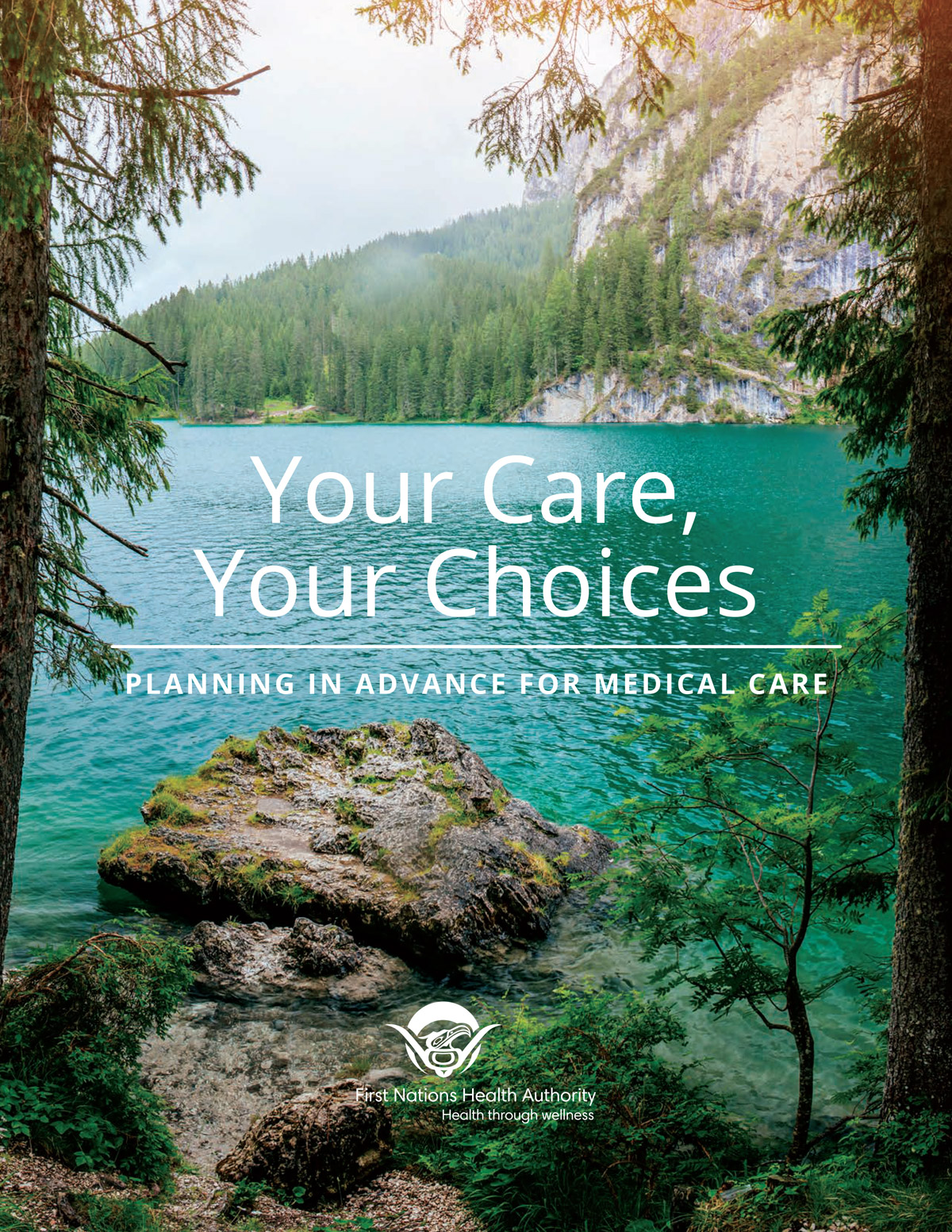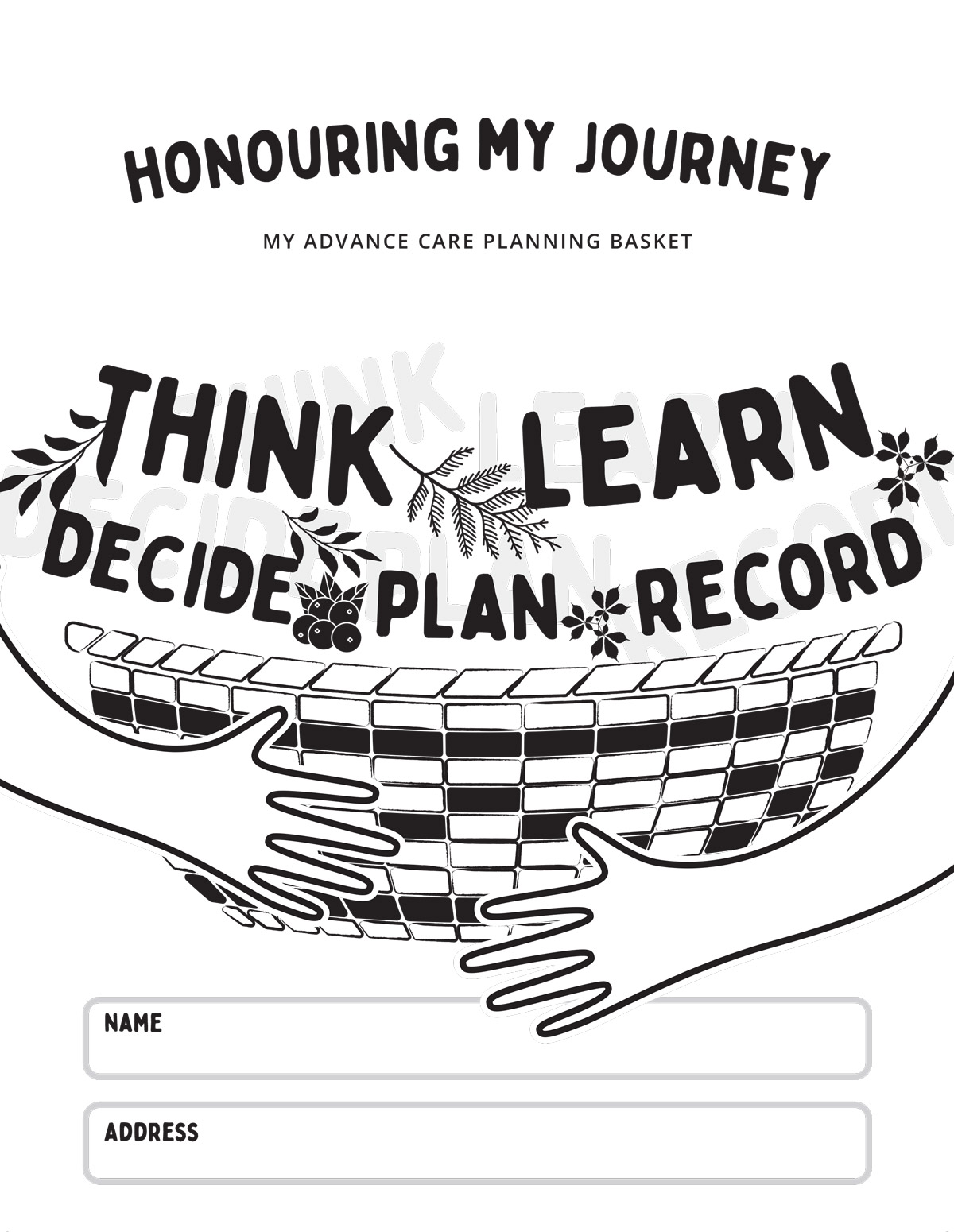What Is Advance Care Planning?
Advanced Care Planning is the process that helps you prepare for your future health care at any point in your life. It’s about thinking about what matters to you (your values, goals, traditional practices and health care wishes) and sharing it with your family, loved ones and health care providers. It's also about deciding who will speak for you if you can't speak for yourself; called a substitute decision-maker.
Preparing a Basket
Advance Care Planning is like having a basket of helpful information that you can reach into when needed. For more about how to prepare your basket, see the FNHA brochure
Advance Care Planning: Preparing a Basket with What Matters to You.
Five Steps in Advance Care Planning
The goal of advance care planning is to help ensure you receive health care that is consistent with your values, goals and preferences. Advance Care Planning includes 5 main steps:
- Think about what matters to you.
- Learn about any health conditions you have.
- Choose who can speak for you, if you are unable - a Substitute Decision Maker (SDM).
- Share your health care wishes with your family, friends and health care providers about your health care wishes.
- Record your wishes, goals and priorities. Share copies with people who matter to you.
Finally, remember that you will need to review your Advance Care Plan when there are changes to your health and wellness. Refer to Your Care, Your Choices for more information.
Your Care, Your Choices

Your Care, Your Choices is a full guide to learning about Advance Care Planning in BC.
The guide was adapted with input from various BC First Nations people and health care providers. It includes personal stories, information about substitute decision makers, and medical care options. There are workbook-style pages for you to record your decisions as well as copies of provincial legal forms.
You can complete the online fillable version or request a print copy at homecare@fnha.ca.
Honouring My Journey

This Honouring My Journey workbook is a tool to help you prepare for your future health care. It’s like preparing a basket of resources and supports that you can reach into when needed. It helps your voice to be heard by those walking alongside you on your journey.
Read the workbook here.
For ACP Facilitators
Advance Care Planning Facilitator Guide includes resources and tools to help share information.
Advance Care Planning (Presenter notes)
Preparing for a Serious Illness Conversation: A Guide for Health Care Providers (for the SIC-adapted) (FNHA & BC Centre for Palliative Care Guide)
Serious Illness Conversation Guide - Adapted Version - This video is about using the Serious Illness Conversation Guide (FNHA & BC Centre for Palliative Care)
Personal Stories
Fancy C. Poitras
My Journey into Advance Care Planning (personal story and
update from Fancy C. Poitras, Senior Policy Analyst at FNHA)
Nikki Hunter
Advance Care Planning can be viewed as a living will – which is difficult for many people to talk about – but it is really about trying to uphold a person's dignity and wishes as they experience illness or journey to the Spirit World.
Related links
Advance Care Planning: Talking to Your Community (Speak Up Canada video)
Coming Full Circle: Planning for Your Care (Booklet)
FNHA and Douglas College Indigenous End-of-Life Course -
This unique four-day course is aimed at First Nations and Indigenous individuals who have been or will be called upon to voluntarily provide care, support and advocacy for someone who is facing the end of their life.
